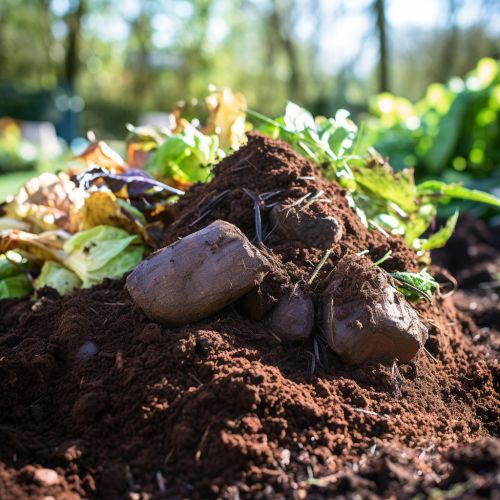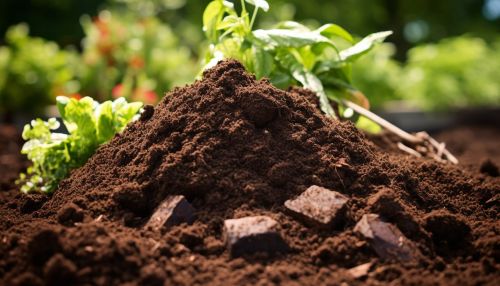Biodegradable pollution
Introduction
Biodegradable pollution refers to waste materials that can be broken down and decomposed by natural biological processes. Unlike non-biodegradable pollutants, which persist in the environment for long periods, biodegradable pollutants are converted into simpler substances by microorganisms such as bacteria and fungi. This process, known as biodegradation, is an essential part of the natural recycling of nutrients in ecosystems.


Types of Biodegradable Pollutants
Biodegradable pollutants can be categorized into three main types: organic waste, sewage, and agricultural pollutants.
Organic Waste
Organic waste includes food scraps, yard waste, and other biodegradable materials that originate from plants or animals. These materials can be broken down by microorganisms into simpler substances, such as carbon dioxide, water, and nutrients, which can be used by plants. However, when organic waste is not properly managed, it can contribute to pollution problems, such as the production of methane, a potent greenhouse gas, and the contamination of water resources.
Sewage
Sewage, or wastewater, is another major source of biodegradable pollution. It contains a variety of organic materials, including human waste, food scraps, and soaps. When sewage is properly treated, the organic materials can be decomposed by microorganisms, reducing the pollution load. However, untreated or inadequately treated sewage can cause serious water pollution problems, including eutrophication, the over-enrichment of water bodies with nutrients, leading to excessive growth of algae and other aquatic plants.
Agricultural Pollutants
Agricultural pollutants include manure, crop residues, and other organic materials that are used in farming. These materials can contribute to soil fertility and productivity when properly managed. However, when they are not properly managed, they can contribute to water and soil pollution, including eutrophication and the contamination of groundwater with nitrates.
Impacts of Biodegradable Pollution
While biodegradable pollutants can be broken down by natural processes, they can still have significant environmental impacts, particularly when they are present in large quantities or when the rate of biodegradation is slow.
Water Pollution
Biodegradable pollutants can contribute to water pollution, particularly in the form of eutrophication. When large amounts of nutrients, such as those found in sewage and agricultural runoff, enter a water body, they can stimulate the excessive growth of algae and other aquatic plants. This can lead to a variety of problems, including the depletion of dissolved oxygen, the death of fish and other aquatic organisms, and the degradation of water quality.
Soil Pollution
Biodegradable pollutants can also contribute to soil pollution. For example, the excessive application of manure or other organic fertilizers can lead to the buildup of nutrients in the soil, which can harm plants and disrupt soil ecosystems. In addition, the decomposition of organic waste in landfills can produce leachate, a liquid that can contaminate soil and groundwater with harmful substances.
Climate Change
Biodegradable pollutants can contribute to climate change by producing greenhouse gases. For example, the decomposition of organic waste in landfills produces methane, a potent greenhouse gas. Similarly, the decomposition of manure in anaerobic conditions can also produce methane.
Management of Biodegradable Pollution
The management of biodegradable pollution involves a variety of strategies, including waste reduction, recycling, composting, and proper sewage treatment.
Waste Reduction
Waste reduction, or waste prevention, involves strategies to reduce the amount of waste that is produced. This can include practices such as reducing food waste, choosing products with less packaging, and reusing items instead of throwing them away.
Recycling and Composting
Recycling and composting are strategies to manage organic waste. Recycling involves the collection and processing of waste materials to make new products. Composting, on the other hand, involves the controlled decomposition of organic waste to produce compost, a nutrient-rich soil amendment.
Sewage Treatment
Proper sewage treatment is essential for reducing the pollution load of wastewater. Sewage treatment involves a series of processes to remove or break down the organic materials in wastewater, including physical, chemical, and biological treatments.
Conclusion
While biodegradable pollution can be broken down by natural processes, it can still have significant environmental impacts, particularly when it is not properly managed. Therefore, it is essential to implement effective strategies to reduce and manage biodegradable pollution, including waste reduction, recycling, composting, and proper sewage treatment.
